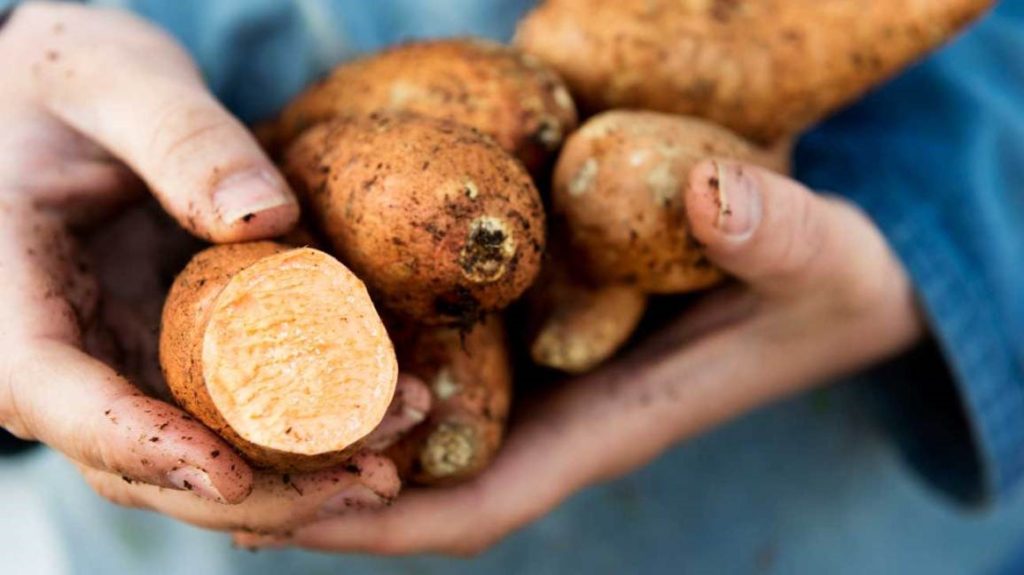The terms “sweet potato” and “yam” are often used interchangeably, causing a lot of confusion.
While both are underground tuber vegetables, they are actually very different.
They belong to different plant families and are only distantly related.
So why all the confusion? This article explains the key differences between sweet potatoes and yams.
What Are Sweet Potatoes?
Sweet potatoes, also known by the scientific name Ipomoea batatas, are starchy root vegetables.
They are thought to originate in Central or South America, but North Carolina is currently the largest producer (1Trusted Source).
Surprisingly, sweet potatoes are only remotely related to potatoes.
Like a regular potato, the tuberous roots of the sweet potato plant are eaten as a vegetable. Their leaves and shoots are also sometimes eaten as greens.
However, sweet potatoes are a very distinctive-looking tuber.
They are long and tapered with a smooth skin that can vary in color, ranging from yellow, orange, red, brown or purple to beige. Depending on the type, the flesh can range from white to orange to even purple.
There are two main types of sweet potatoes:
Dark-Skinned, Orange-Fleshed Sweet Potatoes
Compared to golden-skinned sweet potatoes, these are softer and sweeter with a darker, copper-brown skin and bright orange flesh. They tend to be fluffy and moist and are commonly found in the US.
Share on Pinterest
Golden-Skinned, Pale-Fleshed Sweet Potatoes
This version is firmer with a golden skin and light yellow flesh. It tends to have a drier texture and is less sweet than dark-skinned sweet potatoes.
Share on Pinterest
Regardless of the type, sweet potatoes are generally sweeter and moister than regular potatoes.
They are an extremely robust vegetable. Their long shelf life allows them to be sold year-round. If stored correctly in a cool, dry place, they can keep for up to 2–3 months.
You can buy them in a wide range of different forms, most often whole or sometimes pre-peeled, cooked and sold in cans or frozen.
Summary:
Sweet potatoes are a starchy root vegetable originating in Central or South America.
There are two main varieties. They have a long shelf life and are usually
sweeter and moister than regular potatoes.
